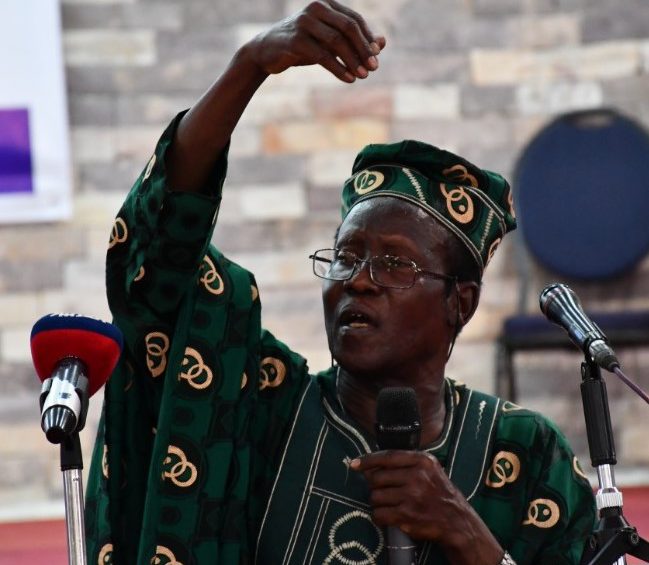You are here: Home | Economy | National News | News | S.Sudan lose over $4billion in 10 years to oil companies

South Sudan Vice President for Economic Cluster, Dr. James Wani Igga speaking in different function in Juba on Monday, 25 January 2021. Courtesy
South Sudan has reportedly lost more than $4 billion to oil companies since the country gained independence in 2011, the government’s economic cluster has disclosed.
Vice President Dr. James Wani Igga said they have discovered an unprecedented level of malpractices among the oil and service companies.
“We are being cheated and this must stop. This would have done a lot for the country, we don’t even need to borrow from anywhere.”
Last month, the ministerial economic cluster began assessing the performances of various revenue-generating institutions.
It started with the oil and petroleum sector.
“We examined only 40 of them out of those 500. Most of them have never paid Personal Income Tax since the independence [of South Sudan],” Dr. Igga stated.
The cluster discovered some companies hoodwinked the government by not paying some taxes for the last 10 years.
“We uncovered unpaid PIT amounting to $1.5 billion for the period of 10 years. This is something that is supposed to go the coffers of the Ministry of Finance,” he said during the launch of the first oil licensing round in Juba on Wednesday, June 23.
“This is not including the sum of $3.3 billion due to the country from the actual oil companies -as arrears.”
Corruption watchdogs say, in South Sudan, government agencies use taxpayer and oil money with total disregard for regulations set for proper and responsible management.
It is not clear which companies defrauded the government over the last 10 years.
But some of the oil companies operating in the country include DAR Petroleum and Operating Company, Greater Pioneer Operating Company, and Nile Petroleum Corporation.
Vice President Dr. Wani Igga warned against non-payment of taxes and asked institutions to be accountable and transparent in all their operations.
“We are going to be more stringent – for sure we can not continue like that. And we will never stomach any defrauding or nonpayment of government rights by any concerned company,” he affirmed.
Dr. Igga stressed the need to step up “good governance, reinforced by the principle pillar of transparency and accountability” in South Sudan.
Analysts believe corruption in South Sudan is facilitated through dishonest transactions between senior government officials with international enablers.
Activists also accuse the government of intentionally crippling institutions charged with ensuring transparency in the management of public resources, the economy, and the financial system.
They include the anti-corruption commission, audit chamber, and the public accounts committee in the legislative houses.
The revitalized peace agreement expects the unity government to be transparent and accountable, with fully functional legal, institutional, policies and procedures for sustainable development.
Support Eye Radio, the first independent radio broadcaster of news, information & entertainment in South Sudan.
Make a monthly or a one off contribution.
Copyright 2024. All rights reserved. Eye Radio is a product of Eye Media Limited.